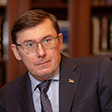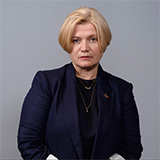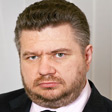Response to Vladimir Medinsky, or 'who is the older brother?'
"Ukrainian nationality is a reality with at least a thousand years of authentic history behind it. No nation has struggled more valiantly to assert its independence than it has done."
(Lancelot Lawton, speech in the House of Commons of the British Parliament, 29 May 1935)
On 10 June 2025, The Wall Street Journal published an interview with Vladimir Medinsky, assistant to the Russian president and head of the Russian delegation at the talks in Istanbul (https://www.wsj.com/world/russia/russia-negotiator-vladimir-medinsky-85612fec). In the interview, former Russian Minister of Culture and propagandist Vladimir Medinsky stated: "The West's mistake is that it views the Ukraine conflict as something similar to those between England and France – two countries with their own distinct histories and cultures. With Ukraine, it is a fight between two states with a common language and culture that are essentially destined to be close allies. This is like a conflict between two brothers-one older and one younger-about who is smarter and more important."
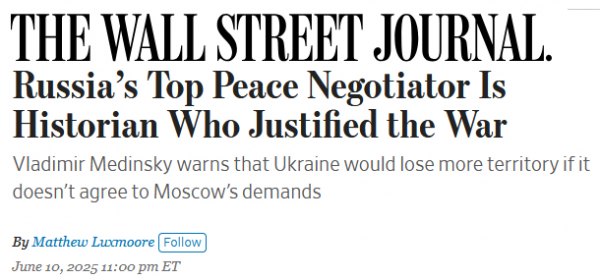
Only one conclusion can be drawn from Vladimir Medinsky's statement: Russian propaganda actively falsifies and conceals historical facts. It spreads pseudoscientific theories in order to justify the invasion of Ukraine, the genocide of Ukrainians and attempts to destroy the Ukrainian nation and statehood.
Back in the 20th century, American political scientist Zbigniew Brzezinski repeatedly emphasised that without Ukraine, Russia would cease to be an empire, and that if Ukraine were to join Russia, the Russian Empire would rise again like a phoenix. Hence the denial of historical facts and state propaganda about a 'single Russian people, a common history and state.' Most importantly, Russia denies Ukraine's right to its own statehood, territory, natural and human resources, because the successful construction of a European form of democracy in Ukraine is a threat to Russia's authoritarian Asian form of government.
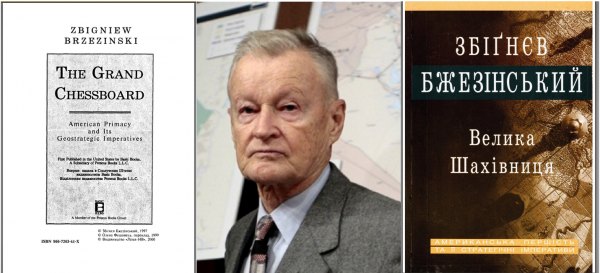
Modern Ukraine is in no way Russia's 'little brother.' Quite the contrary, modern Russia emerged from the former vassal lands of the medieval state of Rus, centred in ancient Kyiv, the capital of modern Ukraine. Before the Mongols conquered these lands in the 13th century, Christianity and elements of European culture and statehood had already reached the vassal lands from Kyiv, not the other way around. Moscow as a city simply did not exist at that time, nor was there a separate Muscovite state.
Since medieval times, Rus-Ukraine was a shield for Europe against Asian conquerors. Its grand princes and kings were related to virtually all the monarchs of Europe. Muscovy, on the other hand, was a province of the Golden Horde and only became an independent state in the 15th century on the ruins of the Mongol Empire of the Genghis Khans. Its current war against Ukraine can rightly be considered another attempt by the New Horde to conquer Europe.
In the 18th century, Muscovy appropriated a name that did not belong to it – 'Rus'. Since then, it has systematically attempted to falsify history in order to conceal both the theft itself and the related efforts to destroy historical memory of the true inheritor of Kyivan Rus – Ukraine. This has been the basis of the Russian Empire's state policy since its formation.
The ideological basis for this policy was laid down in Empress Catherine II's decree of 1783 on the creation of a special 'Commission for the Compilation of Notes on Ancient History, Mainly of Russia'. The decree was entrusted to the Chancellery of Secret Investigations, a body that performed the functions of the political police. Since then, Russia's historical policy has been controlled not by professional historians but by its state security agencies, for whom history is a tool of political warfare.
Even Karl Marx, the founder and classic author of Marxism-Leninism, who was unquestionably authoritative in the former USSR, wrote in his unfinished work 'The Exposure of the Diplomatic History of the 18th Century': "... Moscow history is sewn to the history of Rus' with white threads. The bloody mire of Mongolian slavery, not the rude glory of the Norman epoch, forms the cradle of Muscovy, and modern Russia is but a metamorphosis of Muscovy. Even after its liberation (from Mongol slavery in the 15th century – the author's note), Muscovy continued to play its traditional role of a slave who became a master" (https://day.kyiv.ua/article/istoriya-i-ya/nespodivana-kyyivska-rus).
Today, little can be done to cure the Russian population, which has been brainwashed by years of propaganda, and to change public opinion there. In the West, there is a need for a more effective fight against Russian disinformation, which distorts the history of Ukraine in order to discredit the Ukrainian people's struggle for their identity and survival in the eyes of the West. Undoubtedly, a reduction in Western support for Ukraine at a time when it is most needed would be a tragedy not only for Ukraine but for the entire Western world.
The informational potential of the true history of Rus-Ukraine has a powerful basis for destroying Kremlin myths. The fact that the world's largest Eurasian country is attempting not only to appropriate the history and national identity of its European neighbour, but also to conceal its own, predominantly authoritarian and Asian, history and identity, must be exposed and called by its proper name. This should be a strategic task for all state authorities of Ukraine.
Any impartial historical analysis proves that Ukraine is the direct descendant of medieval Rus with its capital in ancient Kyiv. The central territory of Ukraine is the authentic metropolis of the ancient empire of the Rurikids with the historical name Rus. The former north-eastern European lands of modern Russia that were dependent on it, in particular Vladimir-Suzdal, Ryazan, and Tver, were conquered or acquired after the 13th century by the Muscovites, who were then part of the Mongol Empire of the Chingizids. Muscovy repeatedly captured and lost the Pskov-Novgorod lands, finally conquering them at the end of the 15th century after a bloody war.
Muscovy itself only became independent in the 15th century, after the collapse of the Golden Horde, inheriting from it the Asian form of despotic rule and destroying the remnants of democratic forms of self-government in the former lands that had been under Kyiv's control.
The differences between the two countries and peoples were evident in Europe for several centuries after the actual annexation of Cossack Ukraine to Muscovy in the 17th century, as noted by Voltaire in his work 'Charles XII, King of Sweden' in the 18th century.
Ukraine, on the other hand, while maintaining its autonomy for more than 100 years, with its human, cultural and resource potential, actually made a second attempt to instil European culture in the Asian state and effectively saved Muscovy from extinction. Do not forget that at the beginning of the 17th century, a Polish-Lithuanian-Ukrainian garrison was stationed in the Moscow Kremlin, and the entire Moscow nobility recognised the son of the Polish king Vladislav as their new tsar. Without Ukraine, Muscovy would have had no access to the Baltic and Black Seas, nor would it have had its own fleet. At that time, the fleet of Ukrainian Cossacks under Hetman Sahaidachnyi controlled the Black Sea and even attacked the suburbs of Istanbul, the capital of the then-powerful Ottoman Empire.
Without Ukraine, Muscovy would not have had its own regular army. The best regiments of regular cavalry were formed based on Cossack regiments from Ukraine. Similarly, until 1770, the Ukrainian Land Militia Corps not only protected the borders of Peter the Great's newly created empire (from the Tatars in the south and the Poles in the west) but also served as the basis for the formation of the most combat-ready regiments in the imperial regular army...
Yes, we must admit that Ukraine and Ukrainians were unwitting builders of the Russian Empire, but they were never fond of its Asian-despotic forms of government, slavish obedience and aggressive-nomadic mentality. In the end, they prevailed in the world's largest and most gigantic Eurasian state, which currently bears a name it has stolen from another. Incidentally, none of the subjects of its federation or the hundreds of peoples or nationalities that comprise it have this name.
With virtually no national idea or ideology guiding their coexistence, this federation is currently held together only by a central repressive apparatus, fear, and a sense of pride in a past to which it has no direct connection. Because the victories of the past were achieved by another state that no longer exists. And the phantom pain of that past is pushing it towards disaster today. The phrase that Russia's borders are endless is a direct path to its further disintegration. And it's not just Europe that's waking up. Sweden and Finland have shown that the reason for the war against Ukraine wasn't NATO getting closer to Russia's borders. The danger comes primarily from China. Not only will it not relinquish its borders in Asia, but according to the Kremlin's logic, it also has the right to reclaim its historical lands and protect the Chinese-speaking population in many modern regions of Russia.
Finally, suffice it to compare one of the versions of Ukraine's national idea, formed in accordance with the historical and cultural development of its people, to understand the contemporary differences between the Ukrainian and Russian peoples. After all, human history has already proven that it is precisely the national idea, which reflects the historical experience of a particular people and its uniqueness among other peoples, that determines its mission in life. It represents the formalised self-awareness, purpose and meaning of the existence of any successful people in the world. The meaningful formulation of the national idea creates the ideological and programmatic foundations for the progressive development of such a people. If, as it turns out, the main thing for modern Russians is the unlimited expansion of territories (on which they are unable to ensure a decent life and prosperity even for their own peoples), then for Ukrainians, it is completely different. Similarly, the natural European democracy of Ukrainians clearly contrasts with the Asian tendency of modern Russians towards authoritarianism and obedience to authority.
This version of the National Idea was formulated in 2018 (https://day.kyiv.ua/article/den-planety/nevyvcheni-uroky-hetmanatu-ta-natsionalna-ideya-ukrayiny-u-suchasnykh-umovakh2) and encompasses the national spiritual values and historical and cultural landmarks of Ukrainians, which have been historically formed over thousands of years of our people's development, in three dimensions: spiritual, socio-economic and state-building.
These are the national slogans – the benchmarks:
1. God, Freedom, Family and Ukraine have always been and will remain the highest spiritual values of the Ukrainian people;
2. Culture, Science, Land and Property, which are fairly and evenly distributed between citizens and the state, will forever nourish Ukraine;
3. Electivity, Social Justice, Legality, and the Army will always protect the rights of Ukrainians to life, freedom, and happiness, and defend the unity and independence of the Ukrainian State.
Therefore, we do not need what is not ours, but we will not give up what is ours. We will defend it as long as necessary, as long as the main value of Ukraine, Ukrainians, exists. The people and army of Ukraine have historically proven that they are invincible in their pursuit of freedom and democracy.
Ukrainian version: Відповідь Володимиру Мединському, або ''хто кому старший брат''?, https://blogs.pravda.com.ua/authors/smeshko/684be007552ae/
Блог автора – матеріал, який відображає винятково точку зору автора. Текст блогу не претендує на об'єктивність та всебічність висвітлення теми, яка у ньому піднімається. Редакція "Української правди" не відповідає за достовірність та тлумачення наведеної інформації і виконує винятково роль носія. Точка зору редакції УП може не збігатися з точкою зору автора блогу.


